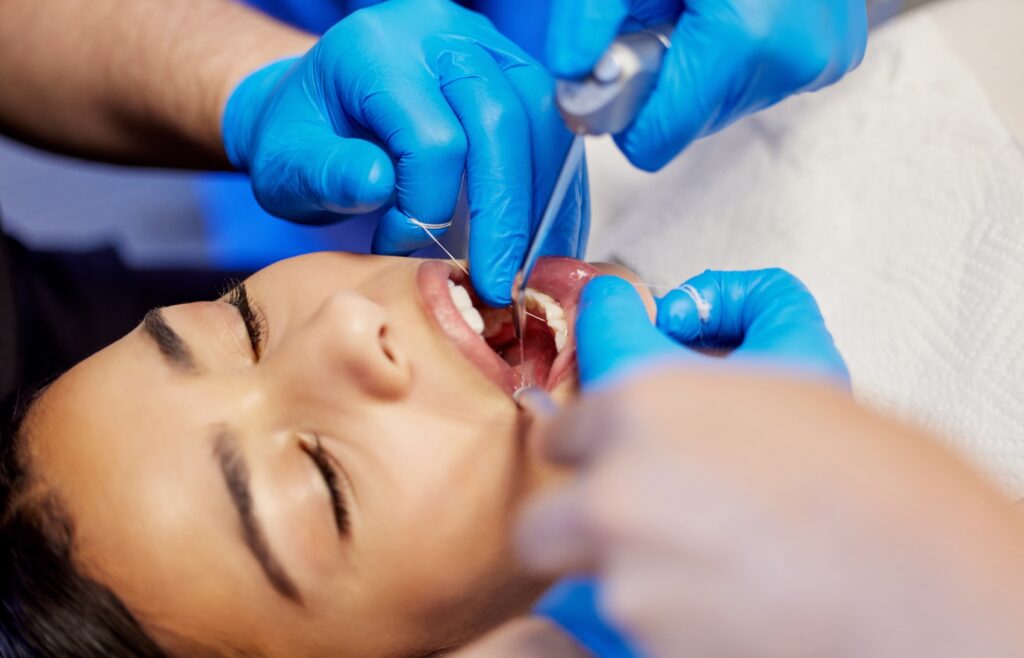
Were you recently in a car or sporting accident that caused you to lose a tooth? It happens more often than you might think. As a result, the acceptance level for dental implants has increased in the past few years.
In fact, the global dental implants market size was valued at $4.6 billion in 2019. Meanwhile, about 15 million people in the US receive crown and bridge replacements for missing teeth annually. About 5 million implants are placed in the US each year.
Not all implants are the same, though. What are the different types of dental implants, and which is right for you?
Keep reading to find out! In this guide, we’ll review everything you need to know about dental implants. Read on to learn more.
Different Types of Dental Implants
First, let’s answer the question you’re likely asking: what are dental implants?
Dental implants help replace missing teeth to fill in the gaps in your smile. Implants are either removable teeth or fixed in place. They’re designed to match the teeth you were born with to ensure a natural-looking smile.
Dental implants can help whether you’re missing a single tooth or several. It’s important to fill in these gaps right away. Otherwise, your existing teeth will shift to fill in the gap.
You could develop bruxism (teeth grinding) or changes in your bite as a result. A gap between your teeth also gives food particles a place to hide, leaving you vulnerable to bacteria.
As your bacteria and saliva mix, plaque can form. Plaque could harden into tartar, leading to gingivitis (gum disease).
Instead of leaving yourself vulnerable, consider the different types of dental implants available. Dental implants can replace your missing teeth to close the gap.
Your dentist will integrate the implant into your jaw bone surgically. This surgery will ensure the implant remains in place, providing a permanent solution.
Most implants are created using pure titanium.
Once the implant is placed, your dentist will insert the dental crown over it. The crown will appear natural among your existing teeth.
The Benefits
Dental implants have a success rate between 90 and 95%. By exploring your dental implant options, you could also experience:
Improved comfort
Reduced speech problems
Ease when chewing
Convenience
Durability
Improved self-esteem
Improved oral health
Beyond that, implants can restore your natural smile! You’ll no longer have to feel self-conscious about having gaps between your teeth.
1. Endosteal
Now let’s discuss the different types of dental implants. There are three common dental implant options your dentist might suggest.
Endosteal dental implants are the most common. They’re also the safest. This type of dental implant is ideal for the majority of patients.
However, you’ll need a healthy jawbone for your dentist to consider you a candidate. Otherwise, the dentist might have a difficult time fusing the post to your jawbone. These posts are shaped like screws.
After the post is in place, it can take time for a stronghold to build. You’ll also need a few weeks to heal. Once you’re properly healed, your dentist can place the implant over the post.
Some patients don’t want to have a post fused into their jawbones. If that’s the case, there are different types of dental implants to consider.
2. Subperiosteal
Many people who want an alternative to endosteal implants choose subperiosteal implants instead.
This type of dental implant isn’t fixed into the jaw bone. Instead, it’s designed to rest on top of the bone. It will still need to remain beneath your gums, though.
Your dentist will need to place a metal frame under your gum. The post will attach to this frame.
After a few weeks, the gum will heal around the frame, ensuring it remains in place.
Then, your dentist will place the implant by securing it to the pole protruding from your gums.
This dental implant option is ideal if you don’t have a healthy enough jawbone. It’s also an option if you want to avoid intensive oral surgery.
If endosteal and subperiosteal aren’t ideal dental implant options, you might want to consider zygomatic implants instead.
3. Zygomatic
Zygomatic implants aren’t as common as the other dental implant types mentioned above. This procedure is complicated. It requires your dentist to place the implant in your cheekbone instead of your jawbone.
Make sure to discuss these different types of dental implants with your dentist. They can help you determine which option is ideal for your oral health needs.
Different Methods for Dental Implants
If your jaw can’t support implants and your dentist doesn’t offer zygomatic implants, there are other methods available. Consider speaking with your dentist about these dental implant methods.
1. All-on-4
Your dentist might suggest an all-on-4 procedure if you’ve lost multiple teeth due to decay. These implants are placed on your existing bone, allowing you to avoid bone grafting. Then, your dentist will place your temporary set of replacement teeth in place.
After six months, you’ll receive your permanent replacement teeth.
2. Single Tooth
Do you only have one or two missing teeth? Your dentist might suggest a single tooth implant. They’ll use a single implant to fill in any gaps.
By filling in the gap, you can start to chew and function properly again.
3. Immediate Load
Want to leave the dentist’s office with a full set of teeth? Immediate load implants allow you to avoid the delay necessary for the healing process.
Instead, you can renew your smile immediately.
4. Mini Implants
Mini implants are smaller and narrower than typical implants. They’re placed using less-invasive techniques.
Make sure to choose an experienced dentist for this procedure. They’ll ensure the mini implant isn’t too tall or positioned improperly.
Filling In Your Smile: The Different Types of Dental Implants Explained
You don’t have to struggle with a gap in your smile anymore! Instead, discuss these different types of dental implants with your dentist. They can help you renew your smile and get a fully-functioning set of teeth once more!
Ready for a happier, healthier smile? We’re here to help.
Schedule an appointment with us today for bright, strong teeth!



